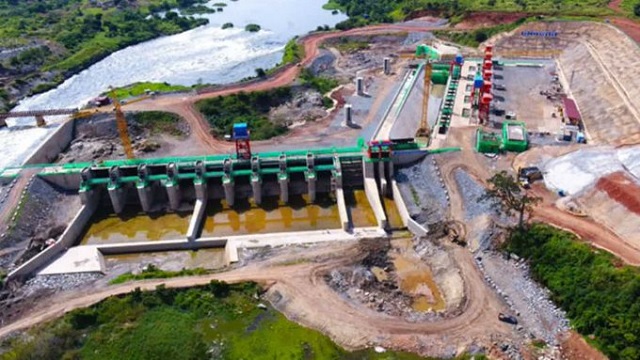
Kampala, Uganda | THE INDEPENDENT | Deputy Speaker Thomas Tayebwa has directed the Ministry of Energy and Mineral Development to prepare a supplementary budget for the compensation of individuals affected by the Karuma Dam project. This decision follows a report from the Parliamentary Committee on Environment and Natural Resources, which reviewed a petition regarding delayed and inadequate compensation for the project’s displaced persons.
On September 5, 2023, the Environment Governance Institute petitioned the Speaker of Parliament, highlighting concerns about insufficient compensation and lack of physical resettlement for 119 households. These issues have led to food insecurity and other challenges for the affected individuals.
The petitioners contended that the compensation was inadequate and unfair, which exposed survivors to food insecurity due to a lack of land for agriculture, contrary to Article 26 of the Constitution of the Republic of Uganda. Speaker Anita Among has tasked the Committee with investigating the nature of the conflicts and reporting back to Parliament by September 12, 2024.
The petition, addressed according to Parliament’s procedural rules, was discussed in a regional sitting in Gulu. The committee’s report revealed that 465.52 hectares of land were acquired for the Karuma hydropower project, displacing 3,735 people, including 280 landowners and 134 tenants.
The project has affected both Karuma Town Council and Awoo Village. Notably, 119 households opted for physical relocation but have not been resettled. The Ministry of Energy had approved a budget of 28 billion shillings for development and compensation, but challenges remain, including a discrepancy in disturbance allowances.
Committee Chairperson Ariko Herbert Edmund reported, “We have a report on ghost landlords as claimants and many issues which require urgent attention of this Parliament so that these people get compensated.”
He also noted, “Land measuring 200 hectares in Nwoya district at Lapono village meant for relocating 119 households has not been developed.” The report also highlighted issues such as ghost landlords and incomplete land title transfers, with the Ministry of Energy having failed to fully pay for necessary approvals, contributing to delays.
Phiona Nyamutoro, the State Minister for Energy and Mineral Development, assured Parliament, “The process of transferring the land titles to the government of Uganda is on,” and she committed to addressing grievances and ensuring project completion.
Nyamutoro added that her ministry is engaging NEMA and Nwoya district local government to expedite approvals and project implementation. She also stated, “We shall implement all the community projects including the orphanage scholarship fund and the matter isn’t only urgent but sensitive.”
Despite these assurances, Members of Parliament are demanding detailed project timelines and accountability. The Buyaga West Constituency Member of Parliament Barnabas Tinkasimire has also urged the Ministry of Energy to speed up the process of compensation of the affected persons.
Deputy Speaker Tayebwa instructed the ministry to present a supplementary budget within one month and to investigate and address issues related to ghost landlords.
Tayebwa argued, “The matter is urgent and the minister should go back to the cabinet and make a supplementary budget and present it to Parliament in one month, it should be this financial year.” He also directed, “Even if now, we support the budget.”
Activists and affected individuals have expressed hope that the parliamentary directive will bring resolution but remain concerned about potential corruption and accountability issues. Walter Ocira, a 55-year-old person with a physical disability, recounted his struggles: “If I had chosen cash, it wouldn’t buy the land equivalent to my land and the value for land keeps increasing here but now I have lost my land and didn’t get compensated.”
He further noted, “They promised us good things, they promised us a good house, and see my life now with my three children, sometimes I beg to survive, other day I sleep hungry with my children.”
He also highlighted issues with ghost landlords: “Some people became landowners even when they didn’t own a plot of land in this area but because they were able to pay for registration between 300,000 to 500,000 shillings.”
The ongoing Karuma Dam project, a $1.7 billion initiative funded by the Export-Import Bank of China and managed by Sinohydro, aims to enhance Uganda’s energy supply but has faced significant compensation and resettlement challenges.
****
URN
 The Independent Uganda: You get the Truth we Pay the Price
The Independent Uganda: You get the Truth we Pay the Price





